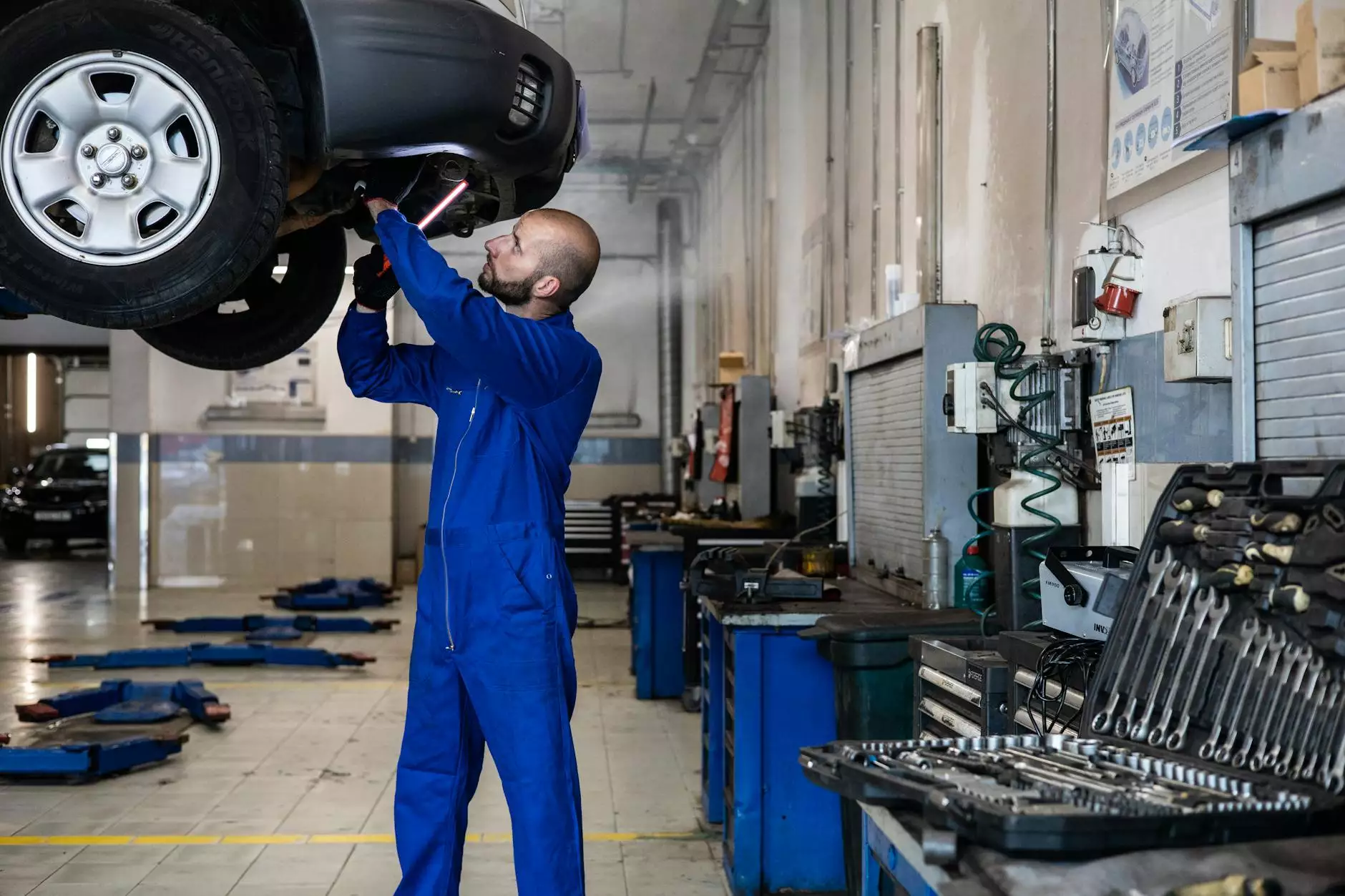Maximizing Business Success with Diesel Engines and Generators: The Complete Guide

In today's fast-paced industrial landscape, diesel engines and generators stand as pillars of power and reliability. Whether you're in manufacturing, construction, energy, or transportation, understanding the nuances of diesel engine manufacturing, sourcing high-quality generators, and managing maintenance costs is crucial. This comprehensive guide explores the dynamic world of diesel engines, focusing on key aspects such as diesel engine manufacturing, diesel generator supply, and crucial details like the mtu spare parts price list. By mastering these components, your business can optimize operations, reduce downtime, and achieve long-term sustainability.
Understanding the Foundations of Diesel Engine Manufacturing
Diesel engine manufacturing is a sophisticated industrial process that demands precision engineering, advanced materials, and rigorous quality control. Leading manufacturers invest heavily in R&D to produce engines that deliver superior performance, longevity, and fuel efficiency.
Key Components of Diesel Engines
- Fuel Injection System: Ensures optimal combustion, improving efficiency and reducing emissions.
- Pistons and Cylinders: Core components that determine power output and durability.
- Turbochargers: Enhance air intake for increased power and efficiency.
- Cooling and Lubrication Systems: Maintain engine temperature and reduce wear for prolonged lifespan.
- Electronic Control Units (ECUs): Modern engines incorporate smart ECUs for adaptive performance and diagnostics.
Innovation and Quality Assurance
Cutting-edge diesel engine manufacturing incorporates innovations such as hybrid systems, emissions reduction technologies, and digitally integrated diagnostics. Quality assurance mechanisms include international standards like ISO 9001, rigorous testing phases, and the use of premium materials. This focus on quality ensures engines operate reliably in demanding conditions, reducing maintenance and replacement costs.
Choosing a Reliable Diesel Generator Supplier
A reliable diesel generator supplier is vital for projects requiring consistent power sources. The selection process should consider product quality, after-sales support, customization options, and cost-effectiveness.
Factors to Consider When Selecting a Generator Supplier
- Product Range: Wide variety of generator capacities and configurations to match your needs.
- Brand Reputation: Established brands with proven track records like mtu, Kohler, Caterpillar, etc.
- Technical Support and Maintenance: Availability of prompt service and genuine spare parts.
- Certifications and Standards: Compliance with international standards for safety and emissions.
- Cost and Financing: Competitive pricing with flexible financing options.
The Role of Quality in Generator Performance
Quality components, rigorous manufacturing standards, and advanced control systems contribute to the longevity and efficiency of diesel generators. Choosing suppliers who prioritize quality ensures minimal downtime, reduced operational costs, and peace of mind during critical power needs.
Deep Dive into mtu Spare Parts and Price List Management
For businesses utilizing mtu equipment, understanding the mtu spare parts price list is key to effective maintenance planning and cost control. Genuine spare parts guarantee optimal engine performance and prevent costly failures.
Why the mtu Spare Parts Price List Matters
The mtu spare parts price list provides transparency, helping maintenance managers budget accurately and avoid unexpected expenses. It encompasses a wide range of components, including filters, sensors, injectors, turbochargers, and electronic modules.
Factors Influencing mtu Spare Parts Prices
- Part Complexity: More complex components typically command higher prices.
- OEM vs Aftermarket: Genuine OEM parts, such as mtu original spare parts, tend to be more expensive but offer superior compatibility and durability.
- Supply Chain and Availability: Geographical location, stock levels, and logistics can influence pricing.
- Market Demand: High-demand components may see price fluctuations.
- Seasonal Factors: Certain times of the year may affect pricing due to supply and demand dynamics.
Optimizing Maintenance Costs with mtu Spare Parts
By leveraging the detailed mtu spare parts price list, your business can develop comprehensive procurement strategies, schedule preventative maintenance, and extend engine life. Investing in genuine parts reduces the risk of operational failures, increases efficiency, and minimizes long-term expenses.
Best Practices for Diesel Engine and Generator Business Growth
To outperform competitors and establish a solid presence in the diesel engine and generator market, consider the following critical strategies:
1. Prioritize Quality and Innovation
Select partners and suppliers who emphasize cutting-edge technology, durability, and adherence to global standards. Continuous innovation ensures your offerings stay ahead of market trends and regulations, especially concerning emissions and energy efficiency.
2. Establish Strong Supplier Relationships
Nurture long-term relationships with reputable manufacturers and suppliers. This approach guarantees access to genuine parts, competitive pricing, and swift support for maintenance and repairs.
3. Embrace Digital Transformation
Utilize digital tools for monitoring, diagnostics, and inventory management. Advanced software solutions can track spare parts usage, predict maintenance needs, and optimize procurement based on real-time data.
4. Focus on Customer Satisfaction
Effective after-sales service, transparent pricing, and comprehensive technical support foster customer loyalty. Building trust encourages repeat business and referrals, vital for market expansion.
5. Continuous Workforce Training
Invest in ongoing technical training for your staff to stay abreast of the latest engine technologies, maintenance techniques, and safety procedures. Skilled personnel ensure high-quality service provision.
Future Trends in Diesel Engines and Power Generation
The industry is evolving rapidly with innovations aimed at sustainability, efficiency, and automation. Key trends include:
- Emission Reduction Technologies: Developments in SCR (Selective Catalytic Reduction) and EGR (Exhaust Gas Recirculation) systems to meet strict environmental standards.
- Hybrid Diesel-Alternative Power Sources: Combining traditional engines with electric systems to reduce fuel consumption and emissions.
- Smart Monitoring Systems: IoT-enabled sensors for real-time diagnostics, predictive maintenance, and operational optimization.
- Modular and Compact Designs: Increasing demand for space-saving, customizable engines suitable for diverse applications.
- Renewable Energy Integration: Hybrid systems that synchronize diesel power with renewable sources like solar or wind to promote greener operations.
Conclusion: Building a Resilient and Competitive Diesel Business
In summation, establishing a business centered around diesel engines and generators requires a meticulous approach to manufacturing excellence, strategic sourcing, price management, and innovation. The diesel engine manufacturer landscape demands continuous adaptation to technological advances, environmental regulations, and market demands.
Focusing on reliable diesel generator supply ensures consistent power, a critical aspect of operations for diverse sectors. Maintaining an updated mtu spare parts price list empowers you to control costs and ensure optimal engine performance. Embracing best practices, fostering strong supplier relationships, and investing in cutting-edge technology are the pillars of sustainable growth.
By integrating these strategies, your business can thrive in the competitive diesel engine and generator market, delivering value to clients worldwide while maintaining profitability and operational excellence.









